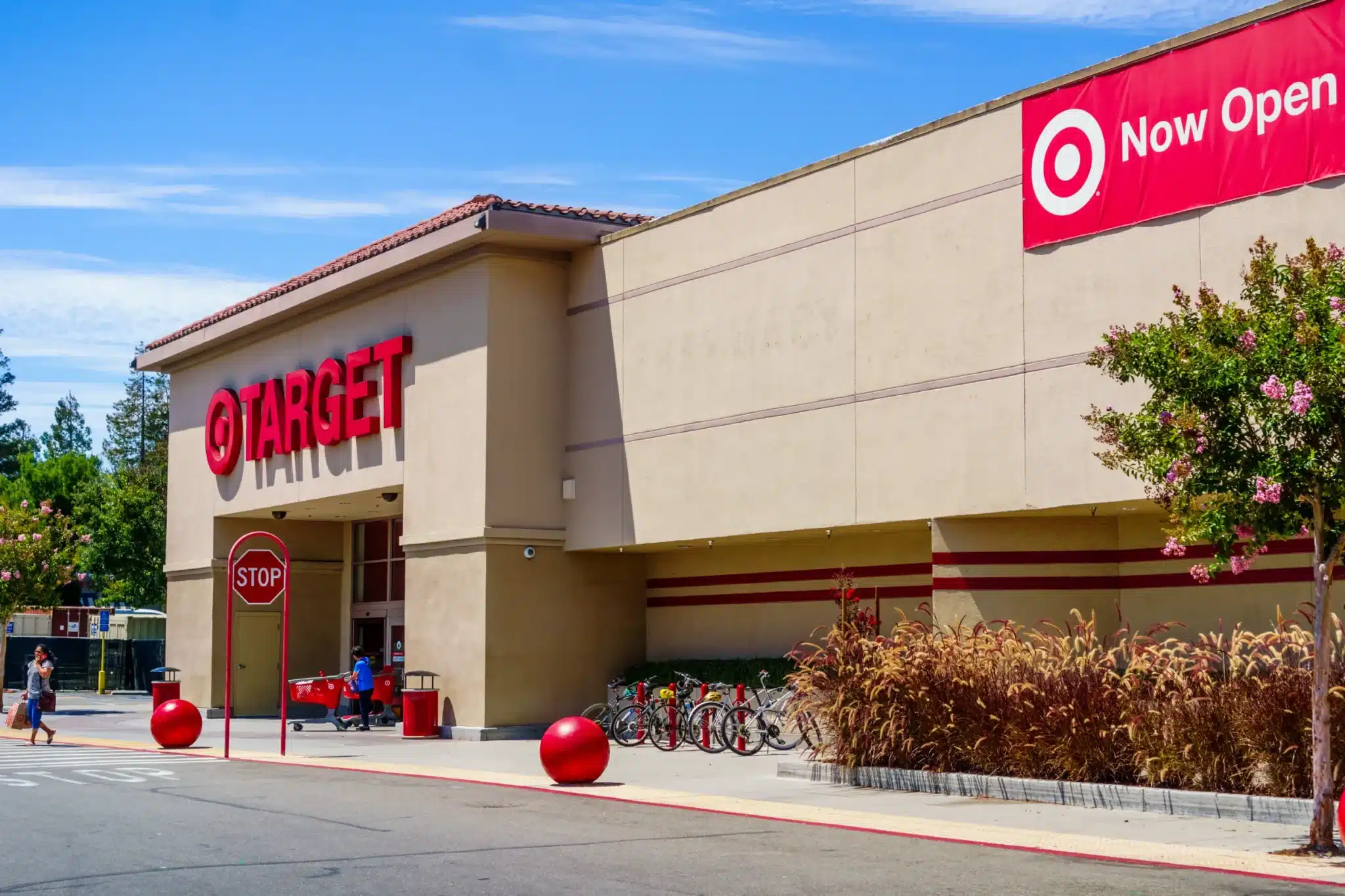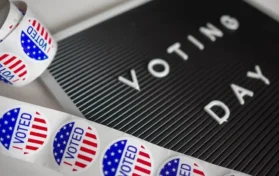
On Monday, KeyBanc Capital Markets reduced its rating for the shares of Target from “overweight” to “sector weight”. This decision was prompted by Congress’ debt ceiling agreement, which mandates the restarting of student loan payments. KeyBanc’s analysts perceive this development as a significant challenge to discretionary spending, considering the retail company’s high volume of discretionary sales and its primary consumer base being younger, college-educated individuals.
JPMorgan also reflected a similar sentiment the previous week, as it issued a downgrade for the same stock. JPMorgan’s analysts expressed concern over potential sales reduction, as they anticipate consumers to curtail their spending in the face of enduring inflation.
Target, the popular American retail corporation, has recently faced a downturn in its share prices following a controversy surrounding its Pride merchandise. As Pride month approached, the retailer introduced a collection of LGBTQ+ products, which subsequently sparked backlash from certain groups of shoppers. This negative reaction led to Target removing some items from its stores and altering other aspects of its LGBTQ+ merchandise nationwide.
The initial uproar began when some customers expressed outrage over Target’s “tuck-friendly” swimsuits and branded the collection as “satanic.” As threats began to impact Target’s team members, the company became increasingly concerned with public and employee safety. Consequently, this prompted the removal of certain items from the Pride collection, provoking a further reactionary response from advocacy groups.
GLAAD, alongside six other advocacy organizations, called on Target to reinstate the removed Pride merchandise and release a statement addressing the situation. While Target grapples with its actions, experts continue to closely monitor its share prices and future business decisions surrounding this controversial matter.
Pride Merchandise Controversy
Backlash on Social Media
During Pride Month, Target introduced a collection of merchandise aimed at celebrating the LGBTQ+ community. However, the retailer faced significant backlash on social media, with some users accusing the company of promoting occult and Satanic-themed items. These allegations led to threats against the safety of Target employees and confrontational behavior in-store.
Misleading Videos
The controversy was exacerbated by the circulation of misleading videos online. One such video featured a transgender influencer who falsely claimed that Target’s Pride collection included inappropriate items that, in reality, were not part of the range. This further fueled the outrage on social media platforms, causing Target to take action against the growing dispute around their Pride merchandise.
In response to the threats and backlash, Target decided to remove certain items from their stores and make other necessary adjustments to their LGBTQ+ merchandise. This move by the retailer aimed to protect the safety of their staff and address the increasing controversy surrounding their Pride Month collection.
Impact on Target’s Business
Shares Downgraded
Following the controversy over Target’s Pride merchandise, the company’s shares have experienced a downgrade. Activists called for a boycott of the retail giant due to the sensitive nature of the LGBTQ-friendly items, leading to an impact on its stock prices. Target’s management, including CEO Brian Cornell, has been working on addressing the issue and making necessary adjustments in order to minimize any long-term negative effects the controversy could have on the company’s market value and reputation.
Sales and Market Value
The backlash surrounding Target’s Pride collection has led to several consequences for the company, including a drop in sales. The extended customer boycotts in response to the merchandise have caused a decline in revenue, posing a significant challenge for the retailer. As a result of this drop in sales, Target’s market value has suffered, with reports of losses totaling up to $10 billion. The company has made efforts to mitigate this situation by removing some of the Pride Month products from its stores. This move was made to both appease critics and ensure the safety of store employees facing potential threats due to the contentious merchandise.
Public Reactions and Opinions
Supporters and LGBTQIA+ Community
Many individuals and organizations have come forward in support of Target’s Pride merchandise, including the LGBTQIA+ community, trans women, and various human rights associations. They argue that such products help raise awareness, promote inclusivity, and celebrate diverse identities. The Human Rights Campaign, for instance, has expressed appreciation for Target’s offerings and their commitment to diverse representation.
However, there have been instances where customers expressed frustration over Target temporarily pulling some merchandise from their stores due to backlash. Advocacy groups like GLAAD and others called on Target to return the Pride merchandise to its stores and website and release a statement addressing the situation.
Opponents and Conservative Critics
On the other hand, opponents and conservative media outlets have voiced their disapproval of Target’s Pride merchandise, calling it “satanic” or harmful to traditional values. Some critics have gone as far as to initiate boycott campaigns against the retail chain, which has led to a decrease in Target’s shares. This outrage has resulted in heated debates and contributed to the ongoing culture wars surrounding LGBTQ+ rights and representation in society.
The debate has intensified as a result of publicized incidents involving customers knocking down Pride displays in stores, confrontations with employees, and threatening videos posted on social media. According to the Associated Press, these incidents have led to Target’s decision to remove certain items amidst concerns about the safety of their workers.
In conclusion, the situation surrounding Target’s Pride merchandise has sparked various reactions and opinions from the public, both in support of and against the retailer’s efforts to promote inclusivity. With tensions rising on both sides, the debate has yet to reach a resolution.
Target’s Response and Actions
Safety Measures and Policies
In response to the recent controversy surrounding its Pride merchandise, Target has implemented new safety measures and policies to protect both its customers and employees. The retail giant has taken decisive action to address safety concerns arising from hostile customers who reacted negatively to the LGBTQ+ merchandise. Target CEO, Brian Cornell, announced that the company is committed to creating a safe and inclusive shopping experience for all customers, regardless of their background or identity.
The company has enhanced security measures around Pride displays in-store, and store workers have received additional training on how to handle confrontational situations. Employees are instructed to prioritize their safety and the safety of others in these situations. Meanwhile, the company is monitoring social media accounts to identify and address any potential threats or disruptions.
Diversity, Equity, and Inclusion Initiatives
Under the leadership of CEO Brian Cornell, Target has made it clear that their commitment to diversity, equity, and inclusion (DEI) remains unwavering, despite the backlash against their Pride merchandise. The company has been transparent about its ongoing efforts to promote diversity and inclusion both within the organization and externally.
In the face of criticism, Target has reasserted its commitment to providing financial support to DEI initiatives, including funding for programs aimed at fostering inclusive and supportive environments for LGBTQ+ individuals. The company also sponsors gender-affirming operations, further solidifying its dedication to being an inclusive employer and retail store.
Overall, Target’s actions in response to the Pride merchandise controversy demonstrate the company’s continued commitment to safety, diversity, equity, and inclusion. Despite facing backlash, Target remains steadfast in its mission to create an inclusive environment for employees and customers alike.
Broader Context and Implications
Corporate America’s Role in LGBTQ+ Issues
Over the years, various corporations have started engaging more actively in social and political issues, like advocating for civil rights and supporting the LGBTQ+ community. Target, a Minneapolis-based retailer, took a significant step toward this by launching Pride merchandise in their stores. However, they were met with backlash and boycott calls, causing a $9 billion decrease in their market value. This incident highlights the delicate balance companies must maintain between promoting diversity and inclusion, protecting their brand value, and navigating public divides.
Navigating Culture Wars and Public Divides
As companies like Target venture into promoting social causes, they face criticism from both non-supporters and advocacy groups. On one hand, critics argue that marketing campaigns aimed at social issues politicize the business environment, while on the other hand, groups like civil rights organizations argue that businesses are essential in promoting an inclusive society. In Target’s case, the retailer moved its Pride merchandise to the back of some stores in Southern states as a response to the controversy.
This situation exemplifies the challenges that corporate America faces when attempting to reconcile differing societal views and the impact these decisions can have on the company’s brand reputation and market value.





